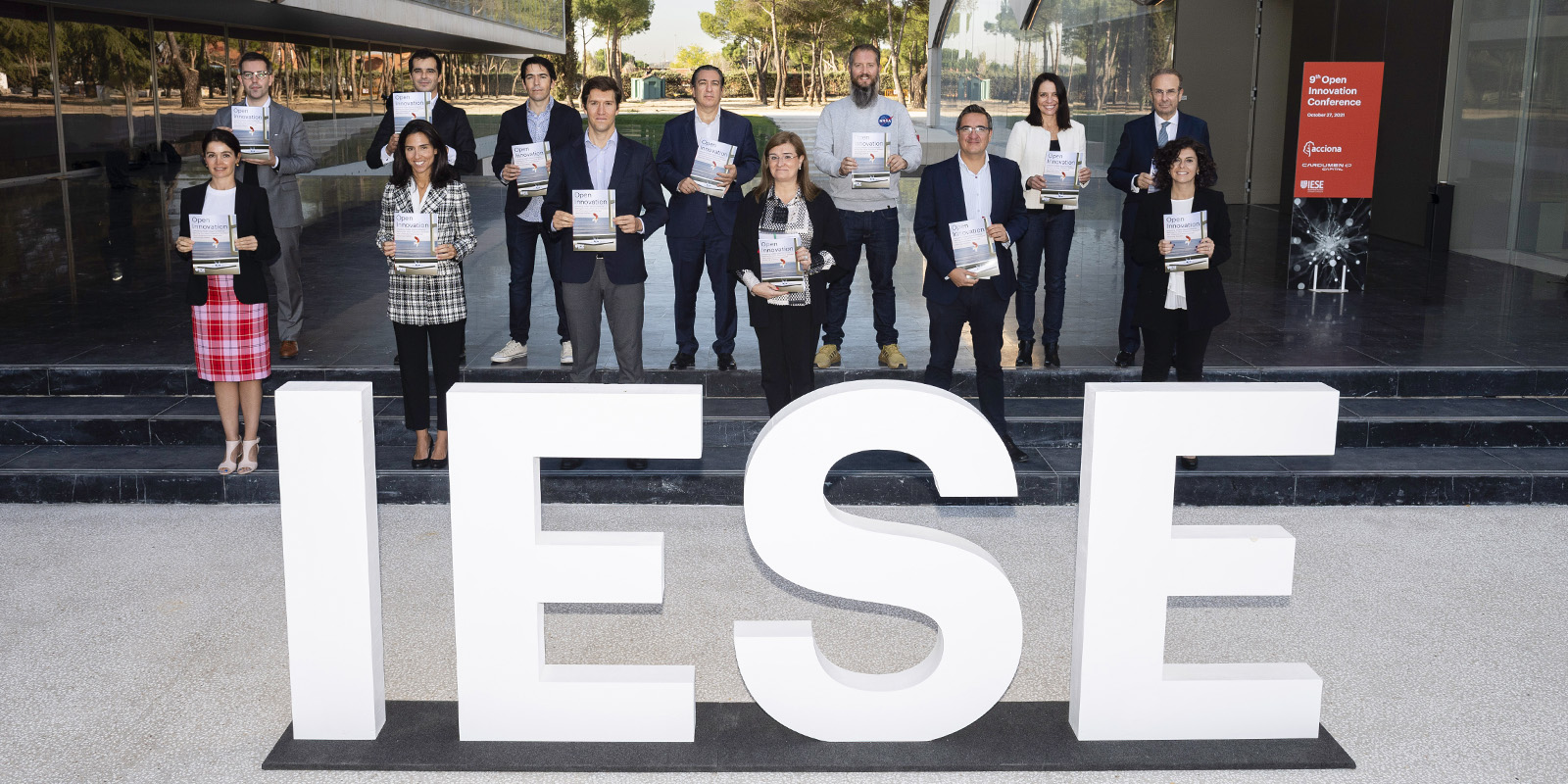- The study looks at potential improvements in open corporate innovation thanks to the roles of enablers such as VC investors, research centres, private accelerators, etc.
- It has been presented at the 9th Open Innovation Conference held at the IESE Madrid Campus and attended by more than 100 chief innovation officers, corporate investors and innovation leaders.

IESE Business School, in collaboration with Acciona and Cardumen Capital, today released their Corporate Venturing Enablers report at the 9th Innovation Conference being held this week in Madrid.
The report seeks to explain how companies can unlock hidden growth opportunities by understanding the role of enablers. This document is therefore a practical guide about the various types of enablers and how to craft a compelling value proposition for both parties.
The conclusions of the study, which was based on 95 interviews with national and international innovation leaders and analyses more than 100 success stories, include the growing importance of enablers such as universities and VC firms in corporate venturing.
According to the study, six categories of enablers have become apparent within corporate venturing:
- Knowledge institutions, including research centres, university departments and think tanks.
- Boosting institutions, namely private incubators and accelerators that support entrepreneurs by providing physical space, technological infrastructure and other types of assistance.
- Investment institutions that fund start-ups, including business angels, venture capitalists (VCs) and private equity firms.
- Public institutions, including governments and embassies.
- Business institutions, including other large corporations, even competitors, as well as chambers of commerce.
- Service institutions, i.e. consultancy firms that offer specialised innovation support.
The report identifies the most salient benefits of incorporating enablers into innovation processes, according to the experts consulted. Topping the list is “independent knowledge” (32% of cases) because of the rapid evolution of trends such as venture clients as a service, fund-of-funds and excubators, combined with the complexity involved in understanding deep tech startups.
Next in line according to those surveyed is "opportunity deal flow" (26% of cases), an area which is increasingly critical as scouting suppliers have proliferated and identifying opportunities before competitors do is becoming more challenging.
The report also finds that enabling institutions benefit in return from their interactions with corporations. Interviewees highlighted companies' "domain expertise" (29% of cases) and their "business applicability" knowledge (17% of cases) as some of the main benefits.
Lastly, it showcases the emerging trend of corporations working together to innovate with startups, also called corporate venturing squads.
The report is being released as part of the 9th Open Innovation Conference, held on October 27 at the new building of IESE’s Madrid campus. The conference brings together chief innovation officers, corporate investors, and innovation leaders from companies such as Airbus, Banco Santander, BBVA, Acciona, Cardumen Capital, Telefónica, Decathlon, Mutua Madrileña and Business Insider.
The event was supported by the dissemination partners Amazon Web Services for Startups, Endeavor, Madrid Innovation Driven Ecosystem, the Spanish Embassy in Tel Aviv, Impact Hub, Madrid City Council, ICEX, the Madrid Chamber of Commerce, and The Collider.
The authors of this report are Josemaria Siota and Mª Julia Prats from IESE, in collaboration with Vittoria Emanuela Bria, Telmo Pérez from ACCIONA, and Gonzalo Martínez de Azagra from Cardumen Capital.
Media Inquiries
Mallory Dees - IESE Business School